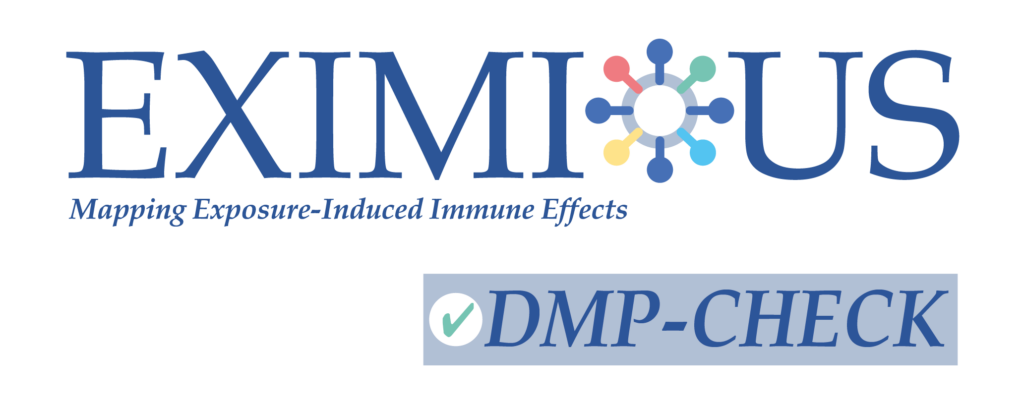Mapping Exposure-Induced Immune Effects: Connecting the Exposome and the Immunome

Target users
Researchers and data-managers
Associated publications
doi.org/10.1016/j.envres.2023.116886
Lead partner(s)

Contact

Data Management Plan (DMP)
Data management and protection in occupational and environmental exposome research a case study from the EU-funded EXIMIOUS project
Within collaborative projects, such as the EU-funded Horizon 2020 EXIMIOUS project (Mapping Exposure-Induced Immune Effects: Connecting the Exposome and the Immunome), collection and analysis of large volumes of data pose challenges in the domain of data management, with regards to both ethical and legal aspects. However, researchers often lack the right tools and/or accurate understanding of the ethical/legal framework to independently address such challenges. With the guidance and support within and between the partner institutes (the researchers and the ethical and legal teams) in the EXIMIOUS project, we have been able to understand and solve most challenges during the first two project years. This has fed into the development of a Data Management Plan and the establishment of data management platforms in accordance with the ethical and legal framework laid down by the EU and the different national regulations of the partners involved. Through this elaborate exercise, we have acquired tools which allow us to make our research data FAIR (Findable, Accessible, Interoperable, and Reusable), while at the same time ensuring data privacy and security (GDPR compliant). Herein we share our experience of creating and managing the data workflow through an open research communication, with the aim of helping other researchers build their data management framework in their own projects. Based on the measures adopted in EXIMIOUS to ensure FAIR data management, we also put together a checklist “DMP CHECK” containing a series of recommendations based on our experience.